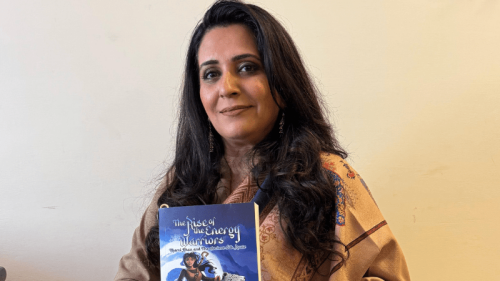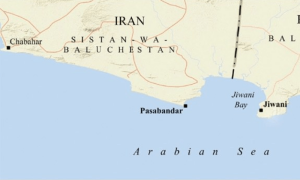ROME: As water shortages, high temperatures and rising greenhouse gas emissions threaten food production, countries around the world are looking somewhere new for solutions — the soil.
For decades, farmers wanting to boost their yields have focused their attention on fertilisers, technology and new seed varieties. Instead, they should be looking under their feet, according to experts, who warn that years of erosion and degradation of the soil through intensive farming have created the conditions for a global food production crisis.
“Data suggests that if we do not restore global soil health, it is highly likely the consequences within 10 years will be many, many millions facing food and water insecurity,” British soil expert John Crawford told the Thomson Reuters Foundation.
This could lead to “civil unrest, mass migration, radicalisation and violence on an unprecedented scale,” said Crawford, until recently a science director at the world’s oldest agricultural research institute, Rothamsted Research.
Much of the problem is caused by erosion, which strips away the highly fertile top layer of soil. An area of soil the size of a soccer pitch is eroded every five seconds, according to the United Nations Food and Agriculture Organisation (FAO).
While soil erosion occurs naturally, human activities such as intensive agriculture, deforestation and urban sprawl have significantly increased the rate at which it is happening.
Nearly a third of Earth’s soil is already degraded. At current rates, that will increase to 90 per cent by 2050, the FAO forecasts, warning that pollution from human activity such as mining and manufacturing as well as erosion are to blame.
There are signs the world is beginning to wake up to the issue, which Crawford said it had only about 10 to 15 years to sort out.
Soil is “one of the most important regulators of global climate” because it stores more carbon than the planet’s atmosphere and vegetation combined, he said.
“If you fix soil, you mitigate a whole bunch of other risks,” added Crawford, now professor of technology and strategy at the Adam Smith Business School in Glasgow.
Whole Foods, the upscale US retailer that made its name selling organic food, has put “regenerative agriculture” — farming that focuses on soil health — at the top of its trends for 2020.
Low-cost testing
From Iowa to the Ayeyarwady delta region of Myanmar — known as the country’s rice bowl — farmers are trying to figure out how to make their soil healthier and more productive.
In a remote village in the Ayeyarwady delta recently, a group of farmers sat cross-legged on a wooden floor and discussed why their once-thriving farms had become less productive. The men had started testing their soil for the first time with the help of Proximity Designs, a business that designs low-cost farming products.
The company only began offering low-cost soil testing services in Myanmar in 2018 and by last October it had already sold more than 7,600 tests at $17 each, highlighting farmer interest.
“We didn’t have anyone to teach us (about soil). We followed suggestions from others, thinking they might work,” said Win Zaw, 44, who grows rice twice a year on his six-acre farm.
“We knew something was wrong, but didn’t know what to do,” he said, looking down at neatly-typed sheets of paper detailing the levels of nitrogen, phosphate, potassium, acidity and organic matter in the soil.
All the farms were showing very low organic matter, which is produced by decomposing plants and is key to good soil health.
Proximity Designs’ agronomists said this was likely due partly to the warm climate, which degrades organic matter more quickly, and partly to local farming practices.
Their recommendations were relatively simple: leave crop residues after the harvest to retain the moisture in the soil, or sow cover crops — those planted to protect the soil between rice plantings rather than for commercial reasons.
When it came to fertiliser use, the recommended amount was much lower than what the farmers were using. “Applying farming practices without knowing what’s happening in the soil can lead to crop failures, soil degradation, environmental damage and ecosystem breakdown,” said Proximity founder Debbie Aung Din.
In Iowa farmers are increasingly seeking to improve soil health, said Richard Cruse, a professor at Iowa State University’s agronomy department.
Published in Dawn, January 4th, 2020














































